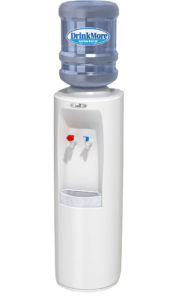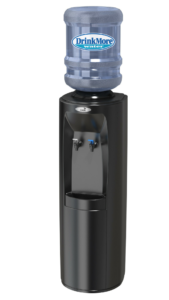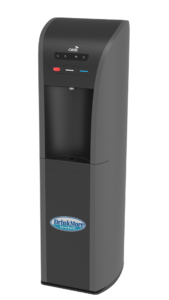At DrinkMore Water, we carry two different types of bottles - BPA-free PET bottles and glass bottles and we carry them in both the 3-gallon and 5-gallon sizes.
Our BPA-free bottles are made 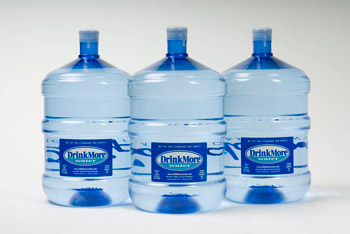 from PET - more technically known as polyethylene terapthalate. Most importantly, they are great bottles with convenient carrying handles imbedded into each one of the 5-gallon bottles. And, of course, they contain ZERO BPA. Originally, most of our bottles were made from polycarbonate, but as a company, we made the decision more than four years ago to eliminate all of the polycarbonate bottles from our inventory. Both our 3-gallon and 5-ga
from PET - more technically known as polyethylene terapthalate. Most importantly, they are great bottles with convenient carrying handles imbedded into each one of the 5-gallon bottles. And, of course, they contain ZERO BPA. Originally, most of our bottles were made from polycarbonate, but as a company, we made the decision more than four years ago to eliminate all of the polycarbonate bottles from our inventory. Both our 3-gallon and 5-ga
Update 2013:
(Summary) The EPA has, in fact, decided to regulate perchlorate under the Safe Drinking Water Act (SDWA). The decision reverses a 2008 preliminary determination, and considers input from almost 39,000 public commenters related to perchlorate. This decision is basically putting people on notice but, in and of itself, does not in itself impose any requirements on public water systems. However, this action initiates a process to develop and establish a national primary drinking water regulation. Once the regulation is finalized, public tap water systems will be required to take action to comply with the regulation in accordance with the schedule specified in the regulation.
(Comment) So, it is worth asking the question. Today, almost 6 years later, the EPA has decided to regulate a chemical found in tap water. They have yet to
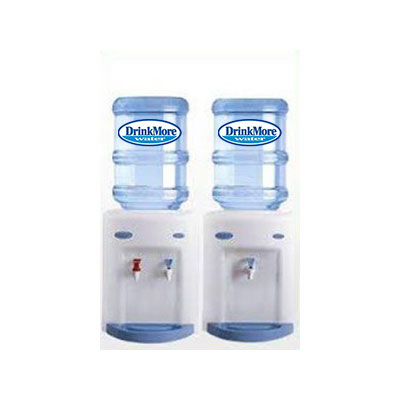
Here are some easy steps to follow to make sure your bottled water cooler is clean and ready for your great tasting DrinkMore Bottled Water. Generally, we recommend that
Hormones and Pharmaceutical Drugs In Our Tap Water - Really?
Well, according to a report by the Associated Press, that's the conclusion from a study of 24 municipal tap waters - yes, small quantities of pharmaceuticals -- including antibiotics, hormones, mood stabilizers, and other drugs - are in our drinking water supplies.
According to WebMD, who reviewed the AP report, these are obvious potential causes for concern. Even the NRDC - which is not a big fan of bottled water to say th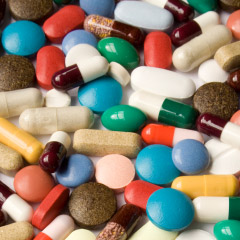 e least - weighs in with concerns. I have quoted (using quotation marks) various parts of the WebMD article
e least - weighs in with concerns. I have quoted (using quotation marks) various parts of the WebMD article
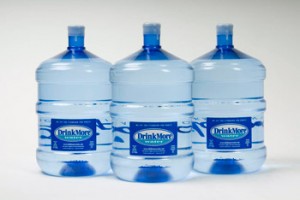 Since our bodies are made up of 70% water and all our internal systems depend on hydration to function at their best, drinking clean, healthy water is the best possible thing you can do for your health.
At DrinkMore Water, we’re dedicated to providing the highest quality purified water, ensuring that every drop is free from contaminants but remains rich in essential nutrients.
We have a proprietary and rigorous 12-step purification process ensuring that the water we deliver is the purest and cleanest possible.
Since our bodies are made up of 70% water and all our internal systems depend on hydration to function at their best, drinking clean, healthy water is the best possible thing you can do for your health.
At DrinkMore Water, we’re dedicated to providing the highest quality purified water, ensuring that every drop is free from contaminants but remains rich in essential nutrients.
We have a proprietary and rigorous 12-step purification process ensuring that the water we deliver is the purest and cleanest possible.
What Is Distilled Water?
Distilled water is water that has undergone a purification process to remove impurities and contaminants.
The way it’s done is simple: The water is boiled until it turns into stea
We often get this question from potential customers and the reasons this question gets asked are at least twofold. Let's explore each of those reasons in more detail.
5-Gallon Bottles
So some people ask the question of whether plastic 5-gallon bottles can be safely reused. The answer is a resounding yes! All of our plastic 5-gallon (and 3-gallon) jugs are made from 100% PET (BPA-free). They're thick and sturdy. When we receive empty bottles back from customers, each and every bottle gets visually inspected and then sniffed for odd odors. Why do we do that? Because we never know what people have done with our bottles after drinking the contents! And we've seen it all. Kids put crayons in them. There can be leaves in them. I've seen them returned having been used to make grain alcohol punch - you name it and we've seen it! That's why we
Bisphenol A is arguably one of the most controversial compounds on earth. It’s been studied, researched, and tested by hundreds of scientists in hundreds of studies. Many of these studies indicate that it is harmless in the quantities tested, while others conclude that it is a serious endocrine disrupter.
As background, bisphenol A, or BPA, is a chemical compound that goes into many different products, some food-related and some not. It has been widely used for many years and continues to be used today. One of its primary uses is to make a type of plastic called polycarbonate (also known as “Lexan”). This material is used extensively as a liner for both steel and aluminum cans—including everything from soup and tuna fish cans to beer and soda cans. Every one of these cans needs some type of coating to prevent rusting on the inside to avoid the food or beverage acquiring a
 from PET - more technically known as polyethylene terapthalate. Most importantly, they are great bottles with convenient carrying handles imbedded into each one of the 5-gallon bottles. And, of course, they contain ZERO BPA. Originally, most of our bottles were made from polycarbonate, but as a company, we made the decision more than four years ago to eliminate all of the polycarbonate bottles from our inventory. Both our 3-gallon and 5-ga
from PET - more technically known as polyethylene terapthalate. Most importantly, they are great bottles with convenient carrying handles imbedded into each one of the 5-gallon bottles. And, of course, they contain ZERO BPA. Originally, most of our bottles were made from polycarbonate, but as a company, we made the decision more than four years ago to eliminate all of the polycarbonate bottles from our inventory. Both our 3-gallon and 5-ga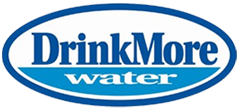



 Since our bodies are made up of 70% water and all our internal systems depend on hydration to function at their best, drinking clean, healthy water is the best possible thing you can do for your health.
At DrinkMore Water, we’re dedicated to providing the highest quality purified water, ensuring that every drop is free from contaminants but remains rich in essential nutrients.
We have a proprietary and rigorous 12-step purification process ensuring that the water we deliver is the purest and cleanest possible.
Since our bodies are made up of 70% water and all our internal systems depend on hydration to function at their best, drinking clean, healthy water is the best possible thing you can do for your health.
At DrinkMore Water, we’re dedicated to providing the highest quality purified water, ensuring that every drop is free from contaminants but remains rich in essential nutrients.
We have a proprietary and rigorous 12-step purification process ensuring that the water we deliver is the purest and cleanest possible.
